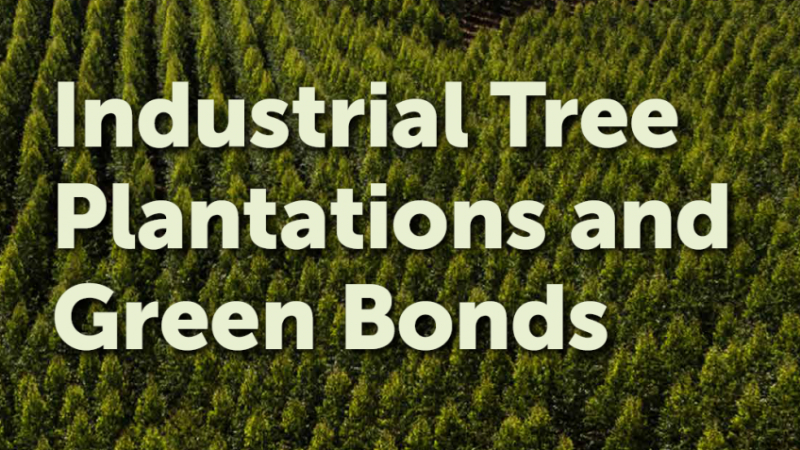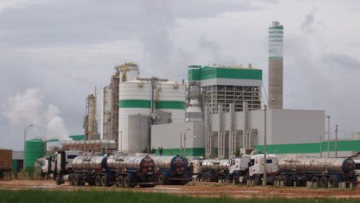Green bonds used to finance damaging industrial tree plantations
Merel van der Mark, merel@environmentalpaper.org

Merel van der Mark, merel@environmentalpaper.org
Green Bonds are used to finance business-as-usual tree plantations and operations of the paper & pulp industry and claiming exaggerated CO2 savings, a new briefing by the Environmental Paper Network (EPN) shows. The briefing presents a case study of a Green Bond issued by the Brazilian pulp & paper giant Fibria, even though the company has not engaged in any kind of environmental reorientation of its business activities. Instead, its Green Bond was used to finance expansions of monoculture industrial tree plantations.
The briefing argues that bonds for industrial tree plantations should not be eligible for a “green” label, as these do not provide additional ecological nor financial benefits. In addition to the negative ecological impacts such as reduction of water availability and pollution by pesticides and fertilizers, plantations have also caused numerous social and land conflicts with traditional communities in Brazil. In order to be beneficial for the climate, tree plantations should maintain and increase the amount of carbon stored in them over time, rather than have the trees quickly harvested and used for short lived products.
Fibria launched a Bond of USD 700 million in 2017 which according to research by EPN has been mostly used to plant eucalyptus plantations and to purchase certified wood for its pulp mills. To a large extent these purchases are part of the everyday business of Fibria.
Green Bonds are supposed to be bonds earmarked for the financing of climate and environmental projects. Issuers of bonds like Fibria usually label bonds ‘green’ themselves, sometimes backed by different kinds of voluntary standards. However, the generally weak criteria of these standards and the poor disclosure requirements allow many business-as-usual projects to be labelled as “green”.
“The example of bonds by Fibria to finance business-as-usual industrial plantations raises the question of whether these self-labelled bonds and weak standards can credibly guarantee that money invested in these bonds will have a positive impact on the environmental and the climate”, said Merel van der Mark, coordinator of pulp finance work at the Environmental Paper Network.
“Green Bonds are an excellent opportunity to put together the growing demand for ethical investment for the huge environmental challenges the world is facing. They can attract resources otherwise unavailable and finance the implementation of projects that contribute to a better environment and climate. But this can only work if the green bonds can provide additional benefits, both financially and ecologically”, said Wolfgang Kuhlmann, the author of the briefing.

